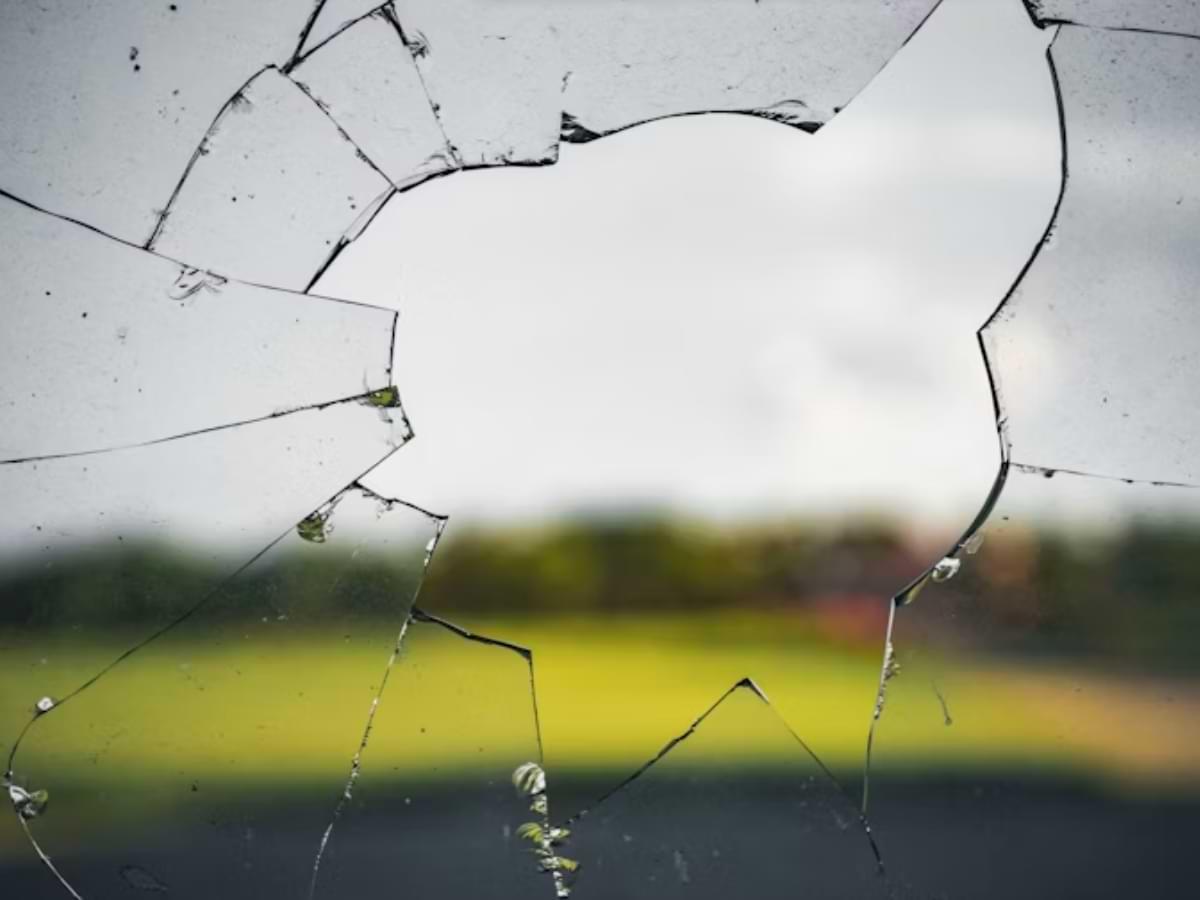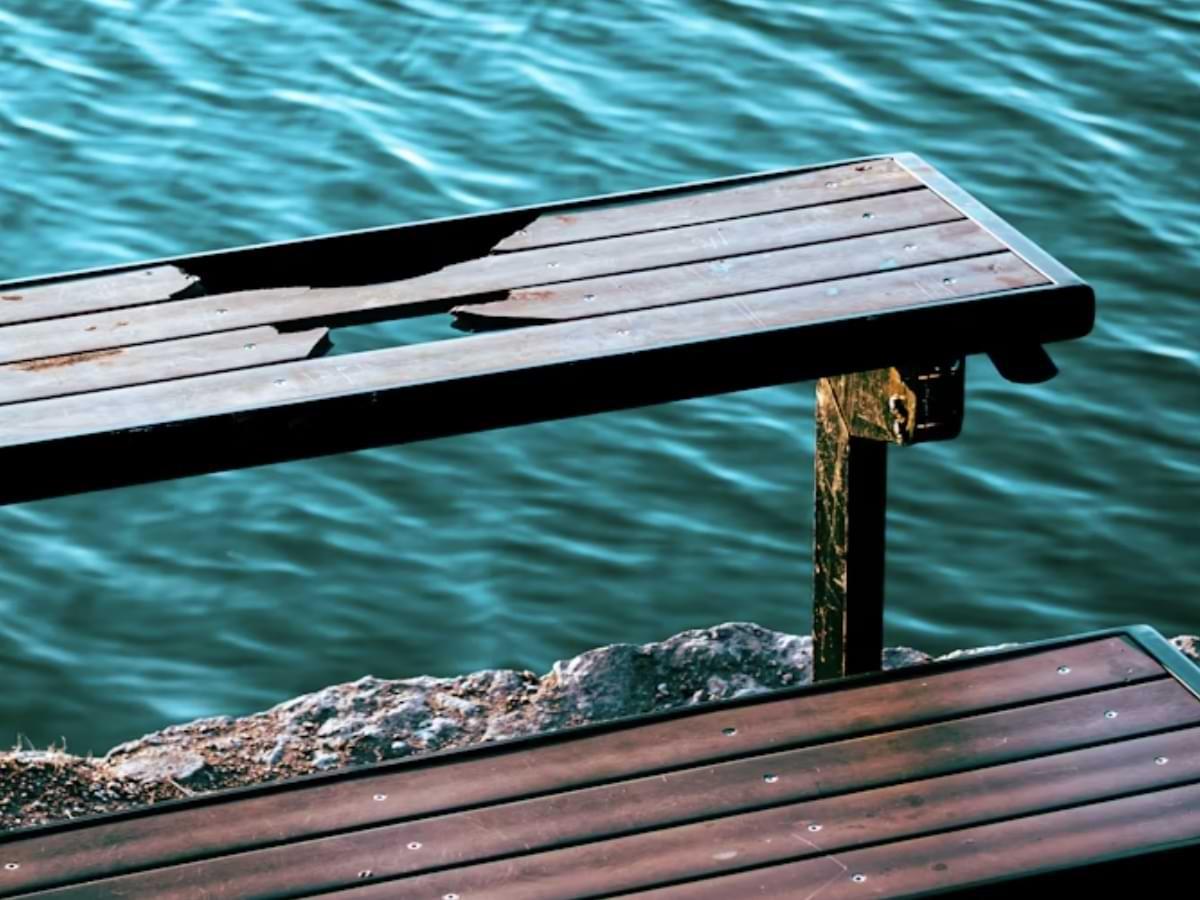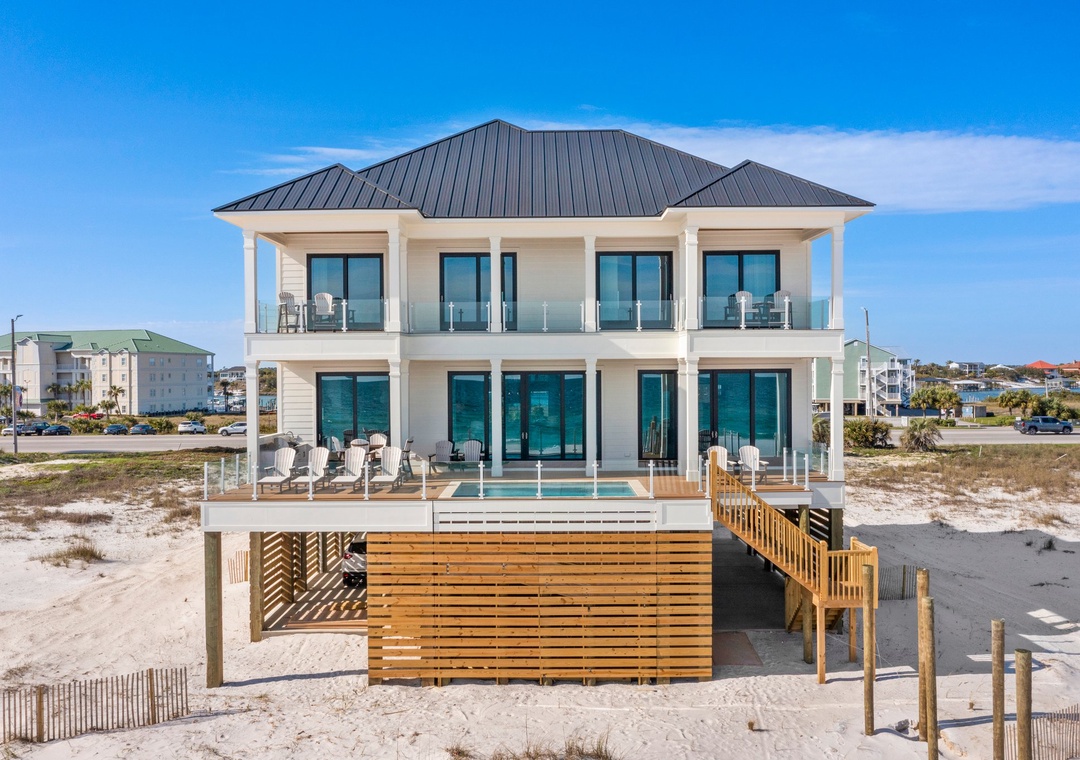Learn how to handle Airbnb and Vrbo damage claims with confidence. From filing steps and documentation to prevention tips and budgeting, this guide helps vacation rental hosts in Perdido Key, Orange Beach, and Gulf Shores manage claims effectively.
Damage claims can feel intimidating for vacation rental hosts, but they're far less common than many assume. With the right systems, documentation, and mindset, you can handle claims smoothly — and keep your Gulf Coast rental running without stress.
TL;DR
- What is a Damage Claim? → A formal process to recover costs when guests damage or remove items from your rental.
- Insights from Data → Damage claims are rare, occurring in fewer than 1% of bookings; Vrbo approves more than Airbnb.
- How to File a Claim → File promptly on Airbnb (14 days) or Vrbo (30 days) with detailed documentation.
- Using a PMS → A Property Management System allows direct charges and simplifies claim handling.
- Minor vs. Major Issues → Small damages are routine, but major ones need evidence and focus.
- Claims & Reviews → Filing a claim may lead to negative reviews, but professionalism helps avoid fallout.
- Wear and Tear → Normal aging isn't damage; budget for maintenance and upgrades.
- Budget for Minor Damages → Set aside ~5% of income or add a small nightly fee to cover minor issues.
- Resolving Major Damages → Use polite communication, OTA records, and strong evidence for big claims.
- Collecting Evidence → Photos, receipts, and before-and-after records make your case stronger.
- Direct Bookings → Use clear contracts, guest IDs, and deposits to protect your property.
- Prevention Tips → Set clear rules, choose durable furnishings, and build rapport with guests.
- Damage Claims at a Glance Table
As trusted rental professionals along the Gulf Coast, the team at Luxury Coastal Vacations understands that successful property management is about more than just handing over the keys. It means taking care of the details that matter — from showcasing your home at its best to ensuring guests enjoy a seamless stay — so that owners can relax knowing their investment is in good hands.
In this blog post, we'll walk you through A Host's Guide to Airbnb and Vrbo Damage Claims, including key insights and practical steps tailored for Perdido Key, Orange Beach, and Gulf Shores homeowners.

1. How Would You Define a Damage Claim?
A damage claim is the process of requesting reimbursement when a guest damages your rental or takes items during their stay. This typically happens through an OTA's resolution center, where hosts and guests can present their sides with moderator oversight.
Not all guests act in bad faith. Some will report and pay for damages honestly, but others may conceal issues. If no agreement is reached, Airbnb or Vrbo will mediate and, if valid, collect funds from the guest. Hosts should always document the damage with photos and receipts to strengthen their case.
Key Takeaways
- A damage claim seeks reimbursement for damage or missing items after a guest's stay.
- Airbnb and Vrbo mediate if hosts and guests disagree.
- Documentation (photos, receipts) strengthens claims.
2. Insights: Data on Damage Claims
Real-world data shows damage claims are rare. A partner with over 20,000 bookings found claims occurred in less than 1% of stays: 0.71% for Airbnb and 0.43% for Vrbo. Vrbo also had higher approval rates (68.3%) compared to Airbnb (56.8%).
This means most hosts will deal with fewer than one claim per 100 bookings. Still, patterns matter. Shorter stays often saw more claims, while booking windows and property size showed less influence. The takeaway: claims happen, but they're not common enough to justify constant worry.
If you're a graph fan, these charts are for you:
Damage Claims by Platform (see graph above)
Damage Claims per 100 Bookings (see graph above)
Damage Claims vs. Length of Stay (see graph above)
Damage Claims vs. Booking Windows (see graph above)
% of Bookings vs. Booking Windows (see graph above)
Damage Claims vs. Rental Size (see graph above)
Key Takeaways
- Claims are rare: 0.71% on Airbnb, 0.43% on Vrbo.
- Vrbo approves more claims (68.3%) than Airbnb (56.8%).
- Shorter stays often mean more claims than longer ones.
- Booking window and property size show limited influence.
3. Damage Claims Guide: How to File Them
On Airbnb, you can file through the Resolution Center or AirCover. Claims must be submitted within 14 days of checkout. Provide detailed evidence, including before-and-after photos, receipts, and repair estimates. Guests have 24 hours to respond before you escalate to Airbnb.
Vrbo is more direct. Use "Report Damage" in the guest's message thread, and submit documentation within 30 days of departure. If a guest disputes the claim, Vrbo will verify with the evidence provided. Lack of proper documentation can lead to rejection — or even suspension of your listing.
Key Takeaways
- Airbnb: File via Resolution Center or AirCover within 14 days.
- Vrbo: Report within 30 days; direct charges to guests apply.
- Strong documentation is critical for both platforms.
4. Using a PMS
If your Vrbo account is connected to a Property Management System (PMS), you may have the ability to charge the guest's credit card directly for damages. This feature streamlines the process and avoids unnecessary delays.
Without a PMS, your options are limited to making a claim against a security deposit or through Vrbo's Resolution Center. Either way, good documentation remains your strongest ally in securing reimbursement.
Key Takeaways
- PMS integration allows direct charges for damages.
- Without a PMS, use security deposits or OTA systems.
- Documentation is still essential for success.
5. Distinguishing Minor from Major Issues
Most damages fall into the "minor" category: broken glassware, stained linens, or a carpet spill. These are manageable and often resolved quickly. Many hosts build small incidentals into their nightly rate to cover these recurring costs.
Major issues are less common but more disruptive. Broken furniture, stolen items, or appliance damage can require significant repairs and even cause lost revenue if your property becomes unbookable. Reserve your energy for these bigger claims and treat minor ones as part of doing business.
Key Takeaways
- Minor issues: dishes, linens, spills — usually manageable.
- Major issues: furniture, appliances, theft — costly and disruptive.
- Don't sweat small issues; save energy for major claims.
6. Damage Claims and Guest Reviews
Filing a damage claim can occasionally lead to a retaliatory review. If that happens, you can challenge the review with the OTA by providing supporting evidence.
To reduce risks, keep all communication professional and factual. Guests are less likely to leave negative reviews if you handle disputes politely and with empathy. Remember: professionalism protects both your reputation and your property.
Key Takeaways
- Damage claims may trigger negative reviews.
- OTAs allow challenges if you have evidence.
- Polite, professional communication reduces risks.

7. What About Wear and Tear?
Wear and tear is normal aging of property items — not claimable damage. Scuffed walls, faded furniture, and limescale buildup fall into this category. These are expected after hosting multiple guests.
The best way to manage wear and tear is proactive maintenance. Invest in durable furniture and appliances, schedule routine checks, and budget for replacements. This approach keeps your property in top condition without unnecessary claims.
Key Takeaways
- Wear and tear ≠ damage.
- Examples: scuffed walls, faded furniture, limescale.
- Prevent with proactive maintenance and durable furnishings.
8. Taking Minor Damages as Ongoing Expenses
Hosts should anticipate and budget for small, routine damages. A common approach is setting aside around 5% of gross rental income for repairs and replacements.
Some managers also add a small nightly fee to cover this buffer. This strategy ensures you're not chasing guests over every broken dish and can focus on guest satisfaction and long-term profitability.
Key Takeaways
- Budget ~5% of gross income for repairs.
- Small nightly fee can offset minor damages.
- Avoid chasing guests for every small issue.
9. Resolving Major Damages
When significant damage occurs, communication is key. Always use OTA messaging platforms so there's a record of conversations. Be polite, describe the issue clearly, and ask if the guest is willing to cover costs.
If the guest refuses, file a claim promptly and provide thorough evidence. Having dated photos, invoices, or staff notes makes your claim stronger and signals professionalism to OTA mediators.
Key Takeaways
- Use OTA platforms for communication and record-keeping.
- Polite, clear communication improves outcomes.
- Provide evidence if escalating to a formal claim.
10. How to Collect Supporting Evidence
Evidence is critical. Take photos or videos immediately after damage is found, and whenever possible, maintain "before" images for comparison. Encourage your cleaning staff to document the property regularly.
Keep invoices, repair estimates, and replacement item links on file. These details help OTAs validate the true value of your claim and improve your chances of full reimbursement.
Key Takeaways
- Take photos/videos immediately.
- "Before" photos help comparisons.
- Save invoices, estimates, and links for proof.
11. Handling Damage with Direct Bookings
Direct bookings require more preparation, since OTAs aren't there to mediate. Always use a clear rental agreement with damage policies spelled out, and collect government-issued ID for accountability.
For major issues, hold deposits when necessary, and don't hesitate to consult an attorney familiar with rental law. With these steps, you can manage risks confidently while still enjoying the benefits of direct bookings.
Key Takeaways
- Use rental agreements with clear policies.
- Collect guest ID for accountability.
- For disputes, hold deposits or seek legal help.
12. Tips to Minimize Damage Claims
Prevention is better than filing claims. Set clear rules about pets, parties, and guest expectations. Furnish with durable but replaceable items, and avoid leaving anything irreplaceable in your rental.
Most importantly, build rapport with guests. Guests who feel they're staying in a cared-for home rather than a faceless rental are more likely to respect your property. Hospitality goes hand-in-hand with property protection.
Key Takeaways
- Prevention is easier than filing claims.
- Set clear rules and expectations.
- Use durable, replaceable furnishings.
- Build rapport for better guest behavior.
13. Damage Claims at a Glance Table
|
# |
Section |
Core Insight |
Action for Hosts |
|
1 |
What is a Damage Claim? |
A claim recovers costs for damage or missing items. |
Document issues, file via OTA resolution centers. |
|
2 |
Insights from Data |
Claims are rare: <1% of bookings; Vrbo has higher approval. |
Expect few claims, but prepare for them. |
|
3 |
How to File a Claim |
Airbnb deadline: 14 days; Vrbo: 30 days. |
Provide receipts, photos, and file promptly. |
|
4 |
Using a PMS |
PMS allows direct guest charges. |
Connect PMS to Vrbo to simplify claims. |
|
5 |
Minor vs. Major Issues |
Most issues are minor, major ones are disruptive. |
Budget for small issues; focus effort on big ones. |
|
6 |
Claims & Reviews |
Claims may trigger negative reviews. |
Stay polite and professional to minimize risks. |
|
7 |
Wear and Tear |
Natural aging ≠ damage. |
Maintain proactively, invest in durability. |
|
8 |
Budget for Minor Damages |
Plan ~5% of gross income for maintenance. |
Add small nightly fee to cover costs. |
|
9 |
Resolving Major Damages |
Strong communication and evidence matter. |
Use OTA platforms and keep records. |
|
10 |
Collecting Evidence |
Photos and invoices strengthen claims. |
Take before-and-after shots, save estimates. |
|
11 |
Direct Bookings |
OTAs won't mediate direct bookings. |
Use contracts, deposits, and ID checks. |
|
12 |
Prevention Tips |
Prevention beats claims. |
Set rules, choose durable items, build guest rapport. |

Partner With Luxury Coastal Vacations
At Luxury Coastal Vacations, we've helped Perdido Key, Orange Beach, and Gulf Shores homeowners increase revenue with better staging, smarter marketing, and professional photography. From handling bookings and guest communication to maximizing performance and protecting your investment, our team makes ownership stress-free and profitable.
Want to see how your property could perform with the right presentation? Get in touch today for a free rental revenue estimate. Let us help you unlock the full potential of your Perdido Key, Orange Beach, or Gulf Shores vacation home.


